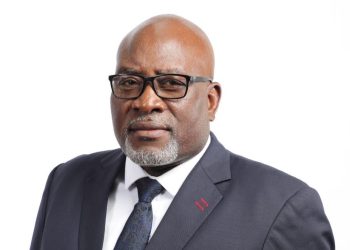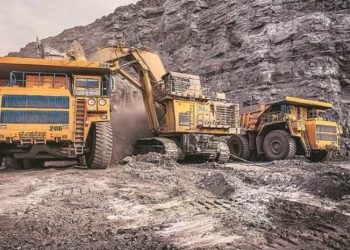
Namibia’s mining sector has invested N$14.1 billion in the domestic economy over the past three years, statistics from the Bank of Namibia (BoN) have revealed.
BoN Governor Johannes !Gawaxab on Tuesday said investment by the extractive sector will increase to N$20.6 billion if on-going investments are accounted for.
“In the past three years the mining sector alone invested N$14.1 billion or 7.2 percent of GDP. The cumulative investments (sum of investments in the past three years and ongoing investments) by the mining sector in the economy is estimated at N$20.6 billion worth of investments equivalent to 10.5 percent of 2022 GDP,” !Gawaxab told a Post-COVID-19 Economy Recovery workshop organized by the central bank.
He said positive developments such as the Green Hydrogen initiative, oil discovery in the south and the good rains expected bolster the country’s growth prospects.
“The Post-covid economic recovery has several positives lined up to bolster its start out of the blocks. All is not doom and gloom. The Green Hydrogen initiative is progressing significantly. Our ports infrastructure has already been upgraded so that a virtual doubling of traffic can be handled, catapulting Namibia’s role as a logistics hub. The recent oil find at sea has stirred considerable excitement. A number of mining and manufacturing projects are underway or in the pipeline,” he said.
“The tourism sector stands ready to capitalise on further lifting of pandemic-related restrictions and normalisation of visitor numbers. And in the meantime, the national spirit has been lifted by the widespread rains that have fallen across Namibia, transforming many frowns into smiles and bringing the promise of higher production in this very decentralised sector that employs 170,000 Namibians.”
He, however, indicated that policy certainty remains a challenge which can impact the country’s post COVID-19 recovery efforts.
“The Post-covid economic recovery faces a number of significant hurdles. Apart from the need to address electricity and digital infrastructure, urgent attention has to be given to creating policy certainty, ensuring professional service delivery and diligent execution of policy, and addressing accountability issues. All of this must be accomplished while the fiscal situation is very tight – Namibia really has to do more with less,” !Gawaxab said.
“Namibia is facing fundamental yet inter-related and self-reinforcing economic headwinds. The country faces the following challenges: growth, inclusion, fiscal sustainability and unemployment. The era of being bystanders in solving our challenges has long ended; apportioning blame is neither helpful; nor will armchair criticism without offering practical solutions contribute to improving the quality of lives of Namibians. The time has come to pinpoint the source of uncertainty, bottlenecks to growth and getting rid of them and galvanising the level of economic activity to restore growth through complementary policy interventions.”
“Nevertheless, improving the potential growth rate of the economy should be a collective effort both from the public and private sectors. Monetary stimulus alone cannot engineer healthy, durable growth. A broad and encompassing policy response is thus crucial to ensure that we do not overly rely on individual measures that could lead to unintended consequences when kept in place for too long.”
His pronouncement comes as the country’s mining sector is expected to drive the Namibia’s economic recovery, with the central bank forecasting the domestic economy to grow by 3% this year.
Rand Merchant Bank’s (RMB) expects growth in 2022 to come in at 3% on the back of mining and agriculture, before lifting further to 3.5% in 2023.
The mining sector, according to BoN forecasts, is expected to grow by 1.2% in 2021 as compared to a sharp contraction of 14.9% in 2020, with the growth predominantly driven by strong growth in uranium output, and a moderate increase in diamond output.







